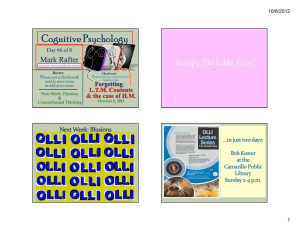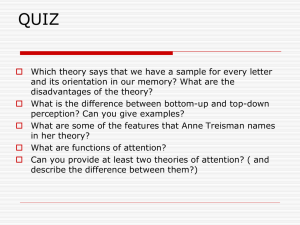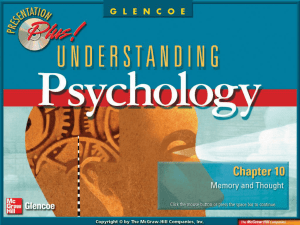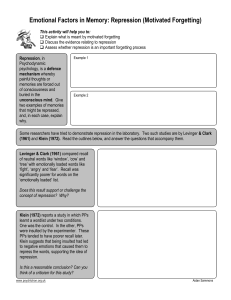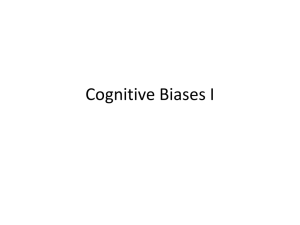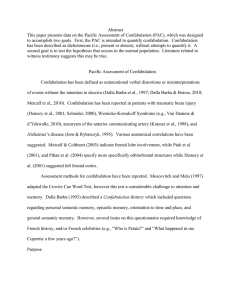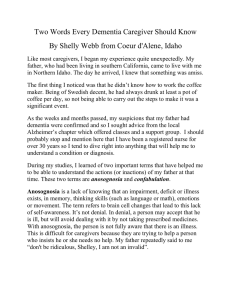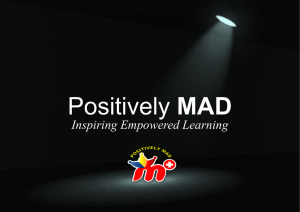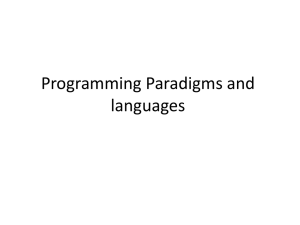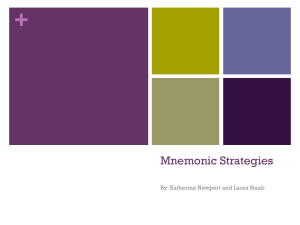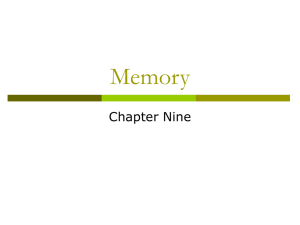Memory Review
advertisement
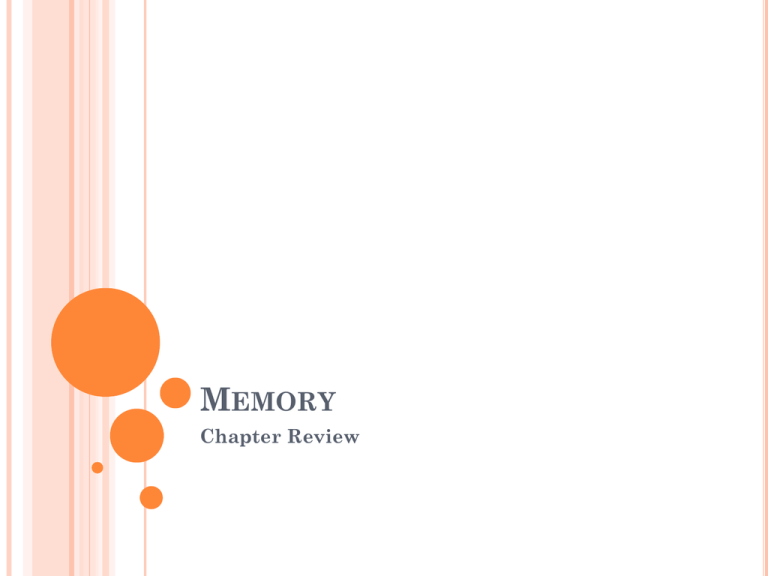
MEMORY Chapter Review Process by which we retain and recall something learned or experienced. What is memory? Identify four parts of the brain were memory is stored. (lecture) Hippocampus Amygdala Frontal Lobes/Cortex Cerebellum Photographic memory is also called a. Eidetic memory b. Confabulation c. Mnemonic memory d. Recall A. Eidetic memory The three memory process are … Encoding, storage, and retrieval Items in your mind at any given moment are in ___memory. Short term Skills make use of ____memory. Procedural Psychologists refer to auditory sensory memory as ___ Echoic memory Psychologists refer to visual sensory memory as______ Iconic memory Which of the following describes your ability to identify the name of your first grade teacher in a newspaper article? a. Confabulation b. Selective attention c. Recognition d. recall C; Recognition Psychologist George Miller discovered that shortterm memory is limited to about ___ a. Seven items b. 10 words c. One hour d. 14 numbers A; seven items Short term memory a. Lasts without rehearsal b. Lasts about one minute c. Lasts about one-half second d. Has a limited capacity. D; has a limited capacity Repeating information to yourself to keep information in short term memory for more than a few seconds is called _________. Maintenance rehearsal Which of the following does NOT result in forgetting? a. Decay b. Repression c. Interference d. confabulation D; Confabulation When old memories are blocked by new material, a person is experience _____________. proactive interference When you ____information, you transform it so the nervous system can process it. encode Short term memory capacity is increased when we break the info down into parts. This is called ______________. Chunking Subconsciously blocking memories of an embarrassing or frightening experience is called___________. Repression HOMES (an acronym for the five Great Lakes) is an example of this. Mnemonic device Two types of Long Term Memory are… Implicit vs. Explicit Memory And Procedural vs. Declarative __________memory is our memory of our own life, such as when you woke up this morning. Stored here are personal things where time of occurrence is important. Episodic ____________consists of permanent storage of learned skills that does not require conscious recollection. Procedural Our knowledge of language, including its rules, words, and meanings is stored in __________. Semantic memory When we need to retrieve information we learned a long time ago and haven’t rehearsed lately, we can relearn the information more quickly. This is called _____________. Relearning. When a person remembers information that was never stored in memory. confabulation When you remember items at the beginning and end of a list or story, it is called __________effect. Serial position When you tend to remember the first items in a list or story it is called ________effect. Primacy “Seen Before” ; current event provokes similar retrieval cues, but you haven’t done it. Déjà vu Try to retrieve familiar piece of info but can’t quite do it. Tip of the Tongue Phenomena Who conducted studies of forgetting grouping nonsense syllables together? Hermann Ebbinghaus
